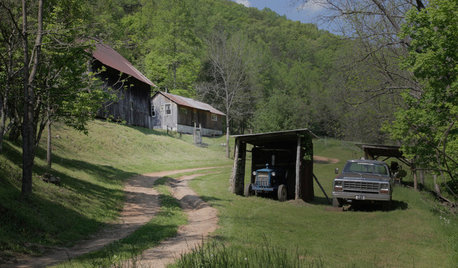July 30, 2007
Josh
16 years ago
Related Stories

SHOP HOUZZShop Houzz: Master the Grill With an Outdoor Cooking Sale
Save up to 30% on these outdoor cooking essentials through July 10, 2015
Full Story
MOST POPULARUnwind With 30 Gorgeous Garden Retreats
Houzz users share their favorite spots for relaxing, meditating and spending time with family and friends
Full Story
EVENTSDesign Calendar: Where to Go and What to See in July
Gaze at gorgeous Italian glass, wrap yourself in Missoni fashion and grab some shade in a garden installation that adapts to you
Full Story
MONTHLY HOME CHECKLISTSTo-Dos: Your July Home Checklist
Care for your house inside and out, and enjoy the good times of summer
Full Story
EVENTSDesign Calendar: What to See and Do in July 2012
Chicago explores the skyscraper's creative heights, the Hirshhorn Museum engages all of your senses and Baltimore has art on its agenda
Full Story
SHOP HOUZZShop Houzz: Retro Wall Decor Sale
Save up to 30% on retro wall art, clocks and signs
Full Story0

SHOP HOUZZShop Houzz: Delightful & Durable Outdoor Rugs on Sale
Save up to 30% on stylish, colorful and durable outdoor rugs
Full Story0

SHOP HOUZZShop Houzz: Light Up Your Night Sale
Save over 30% on outdoor lighting in every style
Full Story0

BEFORE AND AFTERSGray Cabinets Update a Texas Kitchen
Julie Shannon spent 3 years planning her kitchen update, choosing a gray palette and finding the materials for a transitional style
Full Story
TASTEMAKERSNew Series to Give a Glimpse of Life ‘Unplugged’
See what happens when city dwellers relocate to off-the-grid homes in a new show premiering July 29. Tell us: Could you pack up urban life?
Full StoryMore Discussions



endorphinjunkie
Pidge
Related Discussions
Mini-Flora Rose List, July 2007
Q
NEW: A Little Bit Of Me And A Little Bit of You
Q
SS Daily Support, Monday July 23 - Sunday, July 29, 2007
Q
July 2007 New Home Sales Just Posted...
Q
mwoods
endorphinjunkie
andie_rathbone
Pidge
oakleif
JoshOriginal Author
Pidge
meldy_nva
mwoods
andie_rathbone
calliope
mwoods
JoshOriginal Author
calliope
gandle
calliope
mwoods
pamven
Lisa_H OK
Pidge
mwoods
andie_rathbone
JoshOriginal Author
lilod
mwoods
Pidge
endorphinjunkie
Pidge
batyabeth
endorphinjunkie
Pidge
shadowgarden
endorphinjunkie
Pidge
shadowgarden
sun_n_surf_chaser
Pidge
endorphinjunkie
JoshOriginal Author
Pidge
endorphinjunkie
Pidge
endorphinjunkie
JoshOriginal Author
Pidge
JoshOriginal Author
endorphinjunkie
andie_rathbone